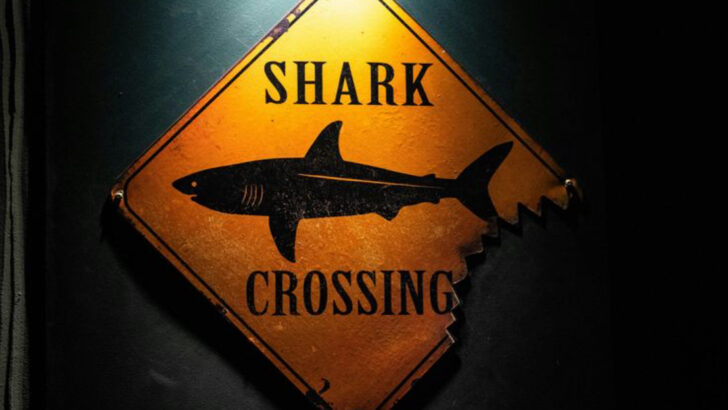Shark phobia is real, and it’s more than just a fear of the ocean’s most terrifying predator. In the U.S., it’s a full-blown cultural phenomenon. But why? Why do we fear these ancient creatures more than anything else lurking in the deep?
For starters, sharks have been wrongly demonized, and that’s only fueled the panic. From movies to media, these misunderstood giants have earned their place as the ultimate villains. But beneath the myth is a fascinating truth—one that will make you rethink your next beach day.
It’s time to set the record straight. Buckle up as we dive into 11 shocking facts about shark phobia, from the science behind the fear to its surprising impact on coastal communities. You won’t believe how deep this fear actually goes!
Origin of Shark Phobia

Shark phobia in the U.S. has historical roots dating back to the early 20th century. The infamous Jersey Shore attacks of 1916 marked a pivotal moment in public perception. News reports sensationalized the incidents, embedding a deep-seated fear.
This phobia was further ingrained by popular culture, with movies and literature heightening the terror. Over time, these events contributed to a societal fear. This historical context helps explain why shark phobia persists today, despite the rarity of attacks.
Understanding these origins is crucial for addressing misconceptions and fostering informed perceptions about sharks.
Media Influence

The impact of media on shark phobia cannot be overstated. Movies like Jaws have dramatized shark attacks, leaving a lasting impression on viewers. The suspenseful scenes and ominous music amplify fear.
Media coverage often focuses on rare shark attacks, emphasizing danger rather than promoting understanding. This skewed representation perpetuates fear, affecting how people perceive sharks.
In reality, sharks are vital for ecological balance. Educating the public through balanced media portrayals can help mitigate irrational fears and encourage appreciation of these misunderstood creatures.
Cognitive Biases

Cognitive biases play a significant role in shark phobia. The availability heuristic makes people overestimate the likelihood of shark attacks. Vivid media images reinforce this bias, skewing perceptions.
Fear of the unknown, a common human trait, also contributes. Sharks, often portrayed as mysterious predators, trigger anxiety. These biases make it difficult to assess risk objectively.
Recognizing these biases can be the first step in overcoming irrational fears. By understanding how our brains process information, we can challenge misconceptions and reduce unwarranted anxiety.
Statistical Reality
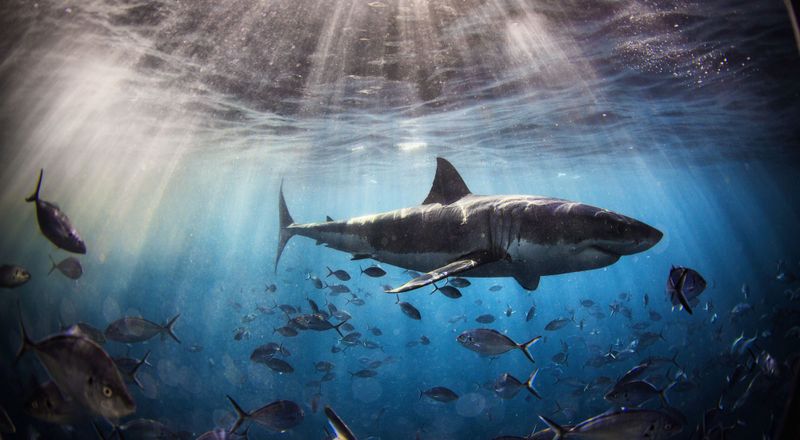
Statistically, shark attacks are exceedingly rare compared to everyday risks. In the U.S., the likelihood of being bitten by a shark is less than being struck by lightning.
Yet, fear persists, driven by sensationalized stories. Understanding the actual risks can help alleviate this irrational fear. Public education on statistics can shift focus from fear to facts.
Providing perspective through data allows individuals to see sharks as less of a threat and more as an essential part of marine ecosystems.
Psychological Effects

Shark phobia can lead to avoidance behaviors, impacting lifestyle choices. Some people avoid swimming in the ocean altogether.
The psychological effects extend beyond fear of sharks themselves. It may manifest in anxiety related to water or beach environments, limiting recreational activities.
Therapeutic interventions, such as exposure therapy, can help individuals manage these fears. Addressing shark phobia requires understanding its psychological roots to provide effective solutions and improve quality of life.
Conservation Misunderstandings

Shark phobia often clouds judgment regarding conservation efforts. Many fail to recognize their vital role in marine ecosystems, maintaining fish populations and ocean health.
Misunderstandings arise from fear, hindering conservation initiatives. Education is key to shifting perceptions and supporting shark conservation.
By learning about their ecological importance, people can move past fear and contribute to preservation efforts. Encouraging informed dialogue can bridge the gap between phobia and conservation.
Shark Attack Survivors
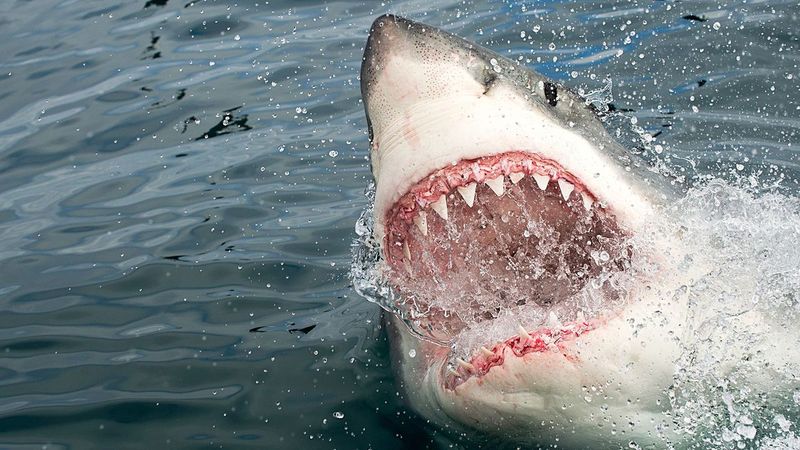
Survivors of shark attacks often face unique challenges. Beyond physical injuries, they contend with emotional trauma and public curiosity.
Their stories, however, can inspire change. Many survivors advocate for shark conservation, using their experiences to educate others.
Sharing these stories helps demystify sharks, highlighting the rarity of attacks and promoting understanding. Survivors play a crucial role in transforming fear into informed awareness, balancing personal experiences with broader ecological narratives.
Economic Impact

Shark phobia can have economic repercussions for coastal communities. Fear-driven media coverage can deter tourists, impacting local businesses reliant on beachgoers.
However, some regions capitalize on shark interest, promoting educational tours and experiences. Balancing fear with fascination can turn potential economic drawbacks into opportunities.
Educating visitors about sharks can enhance tourism, fostering appreciation rather than avoidance. Coastal towns can thrive by reframing shark encounters as educational and enriching experiences.
Cultural Representations
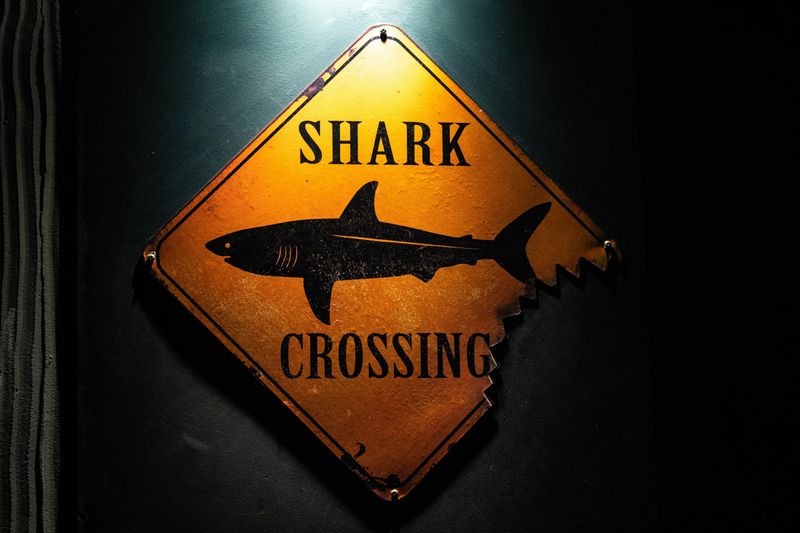
Cultural representations often shape perceptions of sharks. From ancient myths to modern films, these portrayals influence societal attitudes.
Sharks are depicted as both fearsome predators and symbols of strength. These dual images impact how people view them, often emphasizing fear over fact.
Exploring cultural narratives can provide insights into the origins of shark phobia. Understanding these representations allows for a more balanced perspective, encouraging respect and curiosity over fear.
Scientific Advancements
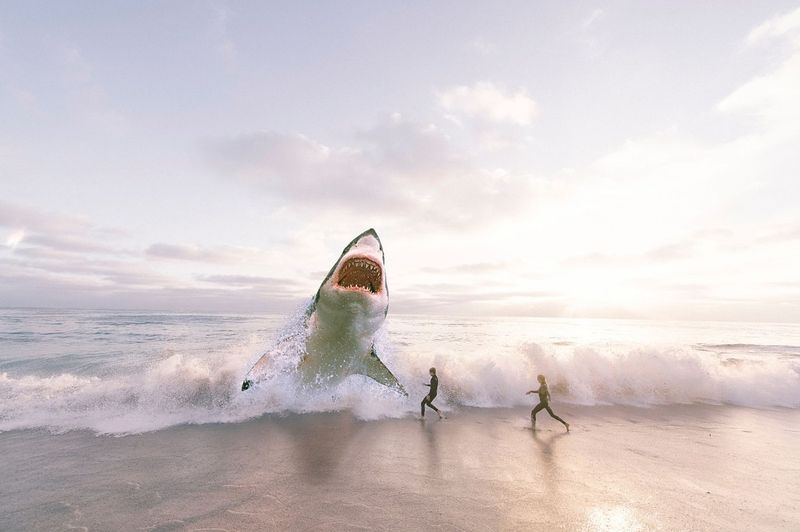
Recent scientific advancements offer new insights into shark behavior. Research into their habits and genetics helps debunk myths that fuel fear.
Understanding shark behavior can demystify their actions, reducing unwarranted fear. Scientists are developing technologies to prevent shark attacks, enhancing safety.
These advancements highlight the importance of science in overcoming phobia. By focusing on research, society can shift from fear-based narratives to fact-based understanding, promoting coexistence with these marine creatures.
Public Awareness Campaigns

Public awareness campaigns play a pivotal role in addressing shark phobia. These initiatives educate the public on actual risks and ecological importance.
Interactive exhibits and community events foster engagement, providing firsthand experiences with shark information. Such campaigns challenge myths and promote informed perspectives.
By participating in awareness efforts, individuals can contribute to changing the narrative around sharks. These campaigns empower communities, transforming fear into knowledge and appreciation.

